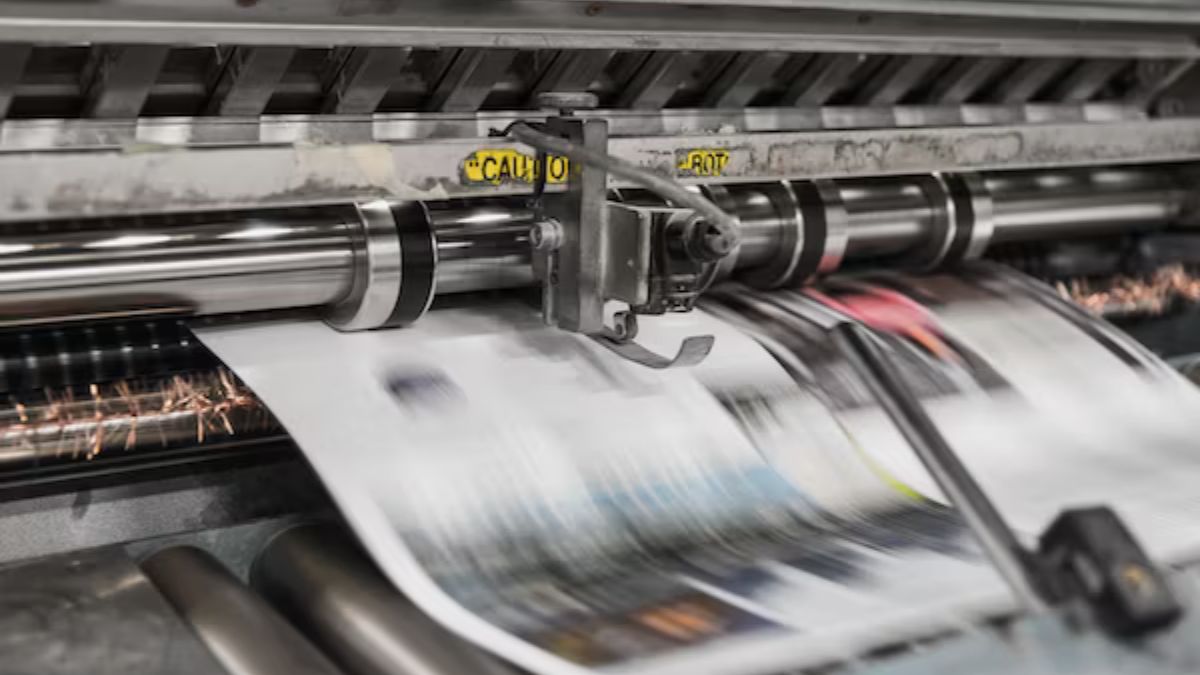NEWS
China Replica: Exploring the World of Imitations

The phrase “China replica” is being used more and more frequently in the consumer products industry. For a wide range of reasons, many people are lured to these knockoff goods. The purpose of this study is to dig into the interesting world of China replica by analyzing their meteoric ascent to fame, the controversy they have sparked, and the reasons that contribute to their attractiveness.
1.Understanding China Replicas
What are China Replica?
Replicas made in China are knockoffs or imitations of more prestigious brands in both form and function. They get their moniker since they are made in China. Anything from apparel and accessories to electronics and car parts may be replicated. The objective is to create a product that is virtually identical to the source material.
The Popularity of China Replicas
The low cost of Chinese knockoffs has contributed much to their meteoric rise to fame. If you want to seem like you have high-end designer items without spending a fortune, these knockoffs are a great option. Consumers have been enticed by the possibility of acquiring an item that looks and feels like a more costly name brand.
2.The Controversy Surrounding China Replicas
Legal and Ethical Implications
Many people believe it is immoral and maybe illegal to produce and sell copies made in China. By copying trademarks, logos, and copyrighted designs without authorization, the companies who make these knockoffs are violating their owners’ intellectual property rights. As well as being a breach of intellectual property rules, this damages the original brand’s reputation.
Impact on Authentic Brands
There is a risk that real brands may be undercut by knockoffs made in China. It’s possible that customers who often save money by purchasing knockoffs may stop appreciating the benefits of originals. This can cause a decline in profits, which in turn could lead to layoffs at the original manufacturer.
3.The Attraction of China Replicas
Price Attraction
The low cost of China’s copies is a major selling point. As a result, buyers may have the “luxury brand” look and feel without the hefty price tag by purchasing copies of popular things.
Quality vs. Cost
Cheaper Chinese knockoffs don’t always hold up to the scrutiny of quality-conscious consumers. The savings come at a price, however, since the quality of the materials and construction may not be up to par with the name-brand alternatives.
4.The Manufacturing Process
Materials Used
Replicas made in China sometimes employ lower-quality materials than their real counterparts. This is crucial in lowering the manufacturing costs and hence the selling price of the knockoff.
Labor and Production
The people who make reproductions in China sometimes get paid far less than the people who make real name brands. This pay gap contributes to the cheap production costs of counterfeit goods.
5.Why People Buy China Replicas
There is no one reason why people buy copies made in China. Some are drawn in by the low prices, while others just want to feel wealthy by associating themselves with a high-end label. The dangers of purchasing these knockoffs should not be overlooked, though.
6.The Risks of Purchasing China Replicas
China-made knock offs might be less expensive, but they are not without dangers. Buyers may face repercussions in the form of the law, and there’s no guarantee of the product’s quality or safety.
7.Spotting China Replicas
In order to make educated purchases, buyers must be able to spot knock offs made in China. It’s vital to be aware of warning indicators and use caution while shopping for items.
8.The Future of China Replicas
There is no clear path forward for copies made in China. It’s possible that superior knockoffs will become more feasible as technology develops. But there’s also a chance that the ethical and legal questions raised by these goods will only grow.
9.Conclusion
Replicas made in China provide a more budget-friendly option to name-brand consumer items. Their low price has contributed greatly to their meteoric rise in popularity. However, their manufacture and distribution might have an impact on legitimate companies and raises ethical and legal considerations. In the end, one’s own tastes and priorities will determine whether or not they buy a duplicate made in China.
10.FAQs
1.Are China replicas illegal?
Yes, the manufacturing and distribution of duplicates from China sometimes violate intellectual property laws.
2.How can I tell if a product is a China replica?
Indicators of low quality include misspelled brand names, cheap materials, and low pricing. Authentic goods are more expensive and of higher quality than fake ones.
3.What are the risks of buying China replicas?
Potential dangers include breaking the law, receiving low-quality goods, and even endangering yourself or others since fakes could not be up to code.
4.What should consumers consider before purchasing China replicas?
The poorer quality and possible legal and ethical repercussions of purchasing reproductions should be considered by consumers.
5.How do China replicas affect the global economy?
Authentic brand income can be negatively impacted by counterfeit goods made in China, which could result in layoffs. Moreover, they are a factor in the counterfeit market worldwide, which has a depressing effect on the economy.
HEALTH
Celine Dion Health: Unveiling the Icon’s Journey and Well-being

Media concerns over Celine Dion health have recently put her in the spotlight, despite her legendary status as a musical genius whose voice has transcended decades. Learn more about the worldwide icon’s incredible career and the rumors circulating about her health in this article.
Celine Dion’s Journey in the Spotlight
Rising to Fame
The meteoric climb to stardom that Celine Dion achieved from her modest origins in Charlemagne, Quebec is truly remarkable. An explosion of fame swept throughout the world as she achieved incredible success in her early career.
Milestones and Achievements
Many young musicians throughout the world look forward to Dion, who has a long list of achievements that includes several Grammy Awards and top-charting singles.
Challenges Faced in the Industry
But the industry has its problems behind the scenes. Her ability to persevere in the face of personal hardships and the pressure to keep up her excellent profession is inspiring.
The Global Icon
There cannot be a medium in which Celine Dion’s presence has not been felt. She has captured audiences throughout the globe and is creating a symbol of strength and beauty.
The Buzz about Celine Dion’s Health
Media Speculations
The health of Celine Dion has been the subject of recent headlines. Photos taken by paparazzi and mysterious social media posts have stoked media rumors, which in turn have caused followers to worry about the celebrity’s health.
Addressing Health Concerns
Reps for Dion have spoken out about the claims, urging fans to distinguish between truth and fiction while also honoring the artist’s desire for seclusion.
Celine Dion’s Statements
Celine Dion has spoken out personally, assuring her followers that she is healthy and calling for more ethical journalism.
Impact on Fans and the Industry
Not only has Dion’s health rumors made her fans feel bad, but they have also sparked larger debates about how far the public may pry into a celebrity’s personal life.
Celine Dion’s Wellness Routine
Physical Fitness
Dion has stayed in shape to preserve her reputation for high-energy performances. Her passion for health is illuminated by insights into her exercise routine and good living choices.
Mental Well-being
When asked about mental health, Dion has been quite forthright in interviews. She bravely confronts the difficulty of juggling the demands of celebrity with her health and happiness.
Balancing Work and Personal Life
Maintaining a healthy work-life balance while simultaneously being a mother and a worldwide superstar is an ongoing challenge. How Dion handles this fine balance reveals a lot about her health as a whole.
Insights from Interviews
Celine Dion discusses aging, keeping relevant in the profession, accepting change, and prioritizing health in exclusive interviews.
Expert Opinions and Insights
Medical Professionals’ Perspectives
Concern over Celine Dion’s wellness has brought together medical experts to discuss the challenge of being a household name and the demands that are placed on their wellness by the general population.
Nutritionists and Health Experts Weigh In
Expert commentary highlights the significance of a well-rounded lifestyle as it pertains to Dion’s health journey, which delves into the function of diet.
Celine Dion’s Team Statements
Team members’ statements offer further background and highlight the teamwork involved in taking care of a worldwide icon’s health.
Balancing Celebrity Life and Health
Examining the difficulties celebrities encounter when trying to live up to their public personas while also taking care of their health is illuminating.
The Power of Celebrity Influence
Impact on Public Health Awareness
The public health awareness movement uses Celine Dion’s health crisis as a springboard to address systemic problems. Beyond the realm of music, her impact sparks conversations about wellness.
Challenges of Celebrity Health Scrutiny
Celebrity health-related criticism may be difficult to manage, and Dion’s story exemplifies the delicate balance between the public interest and individual privacy.
The Responsibility of Public Figures
Famous people have a duty to their fans because of their status in the public eye. A case study in negotiating the challenges of celebrity may be seen in Dion’s approach to balancing transparency and privacy.
Navigating Privacy in the Digital Age
Privacy is a delicate balancing act in this age of social media. The changing face of celebrity life in the internet era is shown by Dion’s story.
Conclusion
Finally, Celine Dion’s health journey offers a fresh take on how fame and health interact. Maintaining a focus on health is critical as fans, journalists, and the business all attempt to strike a balance between being inquisitive and respectful.
FAQs
Is Celine Dion currently facing any serious health issues?
There is no sign of any major health problems, according to recent remarks made by Dion’s representatives.
How does Celine Dion maintain her physical fitness at her age?
Dion is highly committed to his fitness regimen, which mainly consists of frequent workouts and healthy eating habits.
What impact does media speculation have on celebrities’ mental health?
Worry and stress can take a toll on celebrities’ psychological wellness due to the intense scrutiny celebrities face in the press.
How does Celine Dion balance her personal and professional life?
Finding a happy medium between one’s work and personal responsibilities is key, according to Dion.
What can the public learn from Celine Dion’s approach to health and fame?
The lessons we can learn from Celine Dion’s story include perseverance, the value of ethical reporting, and how to stay healthy while being in the spotlight.
NEWS
Top 100 Conservative News Sites: A Comprehensive Guide

Being well-informed and current on current events is crucial in today’s information era. Right news sites play a crucial role in molding public opinion, and they’re worth checking out whether or not you lean right. The purpose of this post is to assist you wade through the ocean of information on the internet by providing a detailed analysis of the 100 most popular conservative news websites.
Why Conservative News?
The Appeal of Conservative News
Conservative news outlets appeal to readers interested in a different perspective, typically one that prioritizes conservative ideals like limited government and a robust national defense. They offer a counterpoint to mainstream media that leans more to the left.
Diverse Opinions
With so many conservative news outlets to choose from, it’s easier to get a feel for the conservative position on a wide range of topics from a variety of angles.
The Top 100 Conservative News Sites
The Pinnacle of Conservative Reporting
Listed below are the top 100 conservative news sites, all of which make important contributions to the conservative media ecosystem. You may get the latest news, in-depth analyses, and thoughtful opinions at these sites.
Conservative Powerhouses
- Fox News: Fox News, which is a prominent brand in the Tea Party movement, airs current affairs coverage, assessments, and interviews in near-real-time.
- The Daily Caller: The Daily Citizen has become recognized as the primary resource for reporting on investigations and additional kinds of in-depth reporting.
Opinion and Commentary
- National Review: National Review is a conservative magazine that features insightful essays and commentary.
- The American Conservative: This forum promotes discussion among conservatives and provides an alternative viewpoint.
News Aggregators
- Drudge Report: A popular news aggregator, that features coverage from a wide range of conservative publications.
- Breitbart: The home of provocative news on the intersection of politics, pop culture, and more.
Emerging Voices
Niche News Sites
Faith and Family
- LifeSiteNews: LifeSiteNews is an excellent resource for social conservatives because of its focus on pro-life and pro-family issues.
Economic Insights
- The Federalist: Provides a fresh perspective on conservative news with its emphasis on economics.
Conclusion
Access to reliable sources offering a range of viewpoints is crucial in today’s information-rich society. For individuals who want their news from a more conservative perspective, there are plenty of conservative news websites to choose from. The top 100 conservative news sites provide readers with a thorough overview of conservative perspectives by offering a wide variety of approaches and material.
FAQ’s
What makes conservative news sites different from mainstream media?
Conservative news sites provide an alternative viewpoint to the more liberal mainstream media by emphasizing conservative ideas like small government and a robust military.
How do I determine the credibility of a conservative news site?
Conservative news sites’ veracity may be evaluated in terms of criteria including journalistic ethics, openness, and standing in the community. It is also wise to check numerous sources before drawing any conclusions.
Can I find unbiased news on conservative news sites?
Many conservative news outlets make an effort to present both sides of an issue. By reading from a variety of outlets, readers may find stories that both reflect their ideals and provide a balanced perspective.
What are some of the emerging conservative news sites worth following?
The Western Journal, The Epoch Times, and The Post Millennial are three of the most prominent new conservative publications. These websites include original research on a wide range of topics.
How do conservative news sites contribute to the media landscape?
Conservative news sites offer an extensive array of news and viewpoints, enhancing the media landscape by offering an alternative viewpoint and encouraging debate.
NEWS
The Spongegirl Case: Unveiling the Phenomenon

Among the many figures who populate popular culture, a select few transcend the realm of pure fiction. A prime example of this is the Spongegirl case, which has made an everlasting impression on the internet because it combines imagination, legal disputes, and a devoted audience.
1. Introduction
A persona that defies categorization and provokes discussions all around the world is introduced to us in the Spongegirl case. The essay explores Spongegirl’s history, legal complexities, cultural influence, and potential future.
2. Background of the Spongegirl Case
From its modest beginnings as a computer invention to its eventual rise to cultural icon status, Spongegirl has come a long way. To fully appreciate the intricacy of the Spongegirl case, it is essential to comprehend its background, which spans from the character’s genesis to her present state.
3. Cultural Impact
The impact of Spongegirl goes well beyond the internet. Spongegirl memes and trends have taken over social media and influenced modern online culture. Investigating the influence of the character reveals why it is so well-liked.
4. Legal Aspects
Conflicts arose in the courts over copyright and IP as Spongegirl’s fame grew. Looking into the legal complexities of Spongegirl helps to illuminate the struggles that the creators had to overcome and how it affected the character’s lasting influence.
5. Spongegirl Merchandise
There is little doubt that Spongegirl has been a commercial success because of the abundance of items available. The marketing methods and sales numbers for Spongegirl’s clothes and accessories reflect the brand’s cultural relevance.
6. Community Response
The Spongegirl fandom has been instrumental in creating the storyline for the character. Examining fan responses and the rise of internet networks offers a window into the emotional realm of Spongegirl lovers.
7. Spongegirl in the Media
Spongegirl is now the center of attention thanks to the mainstream media. An inside look at the character’s evolution and its influence on popular culture is provided by interviews with creators and related parties.
8. The Rise of Spongegirl Fan Art
The development of fan art has played a major role in shaping Spongegirl’s reputation. Nevertheless, discussions within and outside of the community have been prompted by scandals involving explicit fan works.
9. Spongegirl’s Evolution in the Digital Age
The shift from analog to digital media has had an impact on Spongegirl’s visibility throughout the web. For a full grasp of the character’s versatility in the dynamic digital world, knowledge of this development is essential.
10. Spongegirl vs. Similar Characters
When compared to other well-known characters, Spongegirl stands out due to her distinct personality. To understand the character’s lasting popularity, it’s helpful to look at these differences.
11. Brand Collaborations and Sponsorships
Collaborations with many companies have been prompted by Spongegirl’s success. The business aspect of Spongegirl is revealed as the show delves into fruitful relationships and the difficulties encountered during collaborations.
12. Spongegirl Controversies
The character’s tenacity has been put to the test by the numerous scandals and controversies that have engulfed Spongegirl. The complex story of Spongegirl may be better understood by looking at how the public reacted and what happened following these scandals.
13. The Future of Spongegirl
Possible developments and ventures can be sparked by speculating about Spongegirl’s future. The potential is limitless as the character develops further, and fans are excited to see what happens next.
14. Conclusion
Looking back, the Spongegirl case exemplifies how digital creations may influence popular culture. Spongegirl has left an indelible mark on popular culture via its many struggles, triumphs, and controversies, including legal challenges.
15. FAQs
1. What is the origin of Spongegirl?
From her humble beginnings as a computer inventor, Spongegirl has grown into a cultural icon that knows no bounds.
2. How has the legal aspect affected Spongegirl’s popularity?
The Spongegirl story has become more convoluted because of copyright and intellectual property disputes, which have sparked interest and debate.
3. Are there any upcoming projects featuring Spongegirl?
There are some intriguing innovations and ideas in the works for Spongegirl’s future.
4. How do fans contribute to the Spongegirl community?
Through their comments, fan art, and involvement in online groups, Spongegirl fans greatly influence the storyline.
5. What are some notable controversies involving Spongegirl?
Controversies surrounding Spongegirl, such as scandals and discussions around graphic fan art, have further enhanced the show’s cultural influence.
-

 TECH8 months ago
TECH8 months agoExploring the Exciting Features of PHP Version 8.1 for Enhanced Web Development
-

 CRYPTO4 months ago
CRYPTO4 months agoUnlocking the Potential: Understanding WalletConnect là gì
-

 NEWS5 months ago
NEWS5 months agoBestadvise4u.com News: Your Gateway to Informed Living
-

 ENTERTAINMENT5 months ago
ENTERTAINMENT5 months ago“кинокрадко” – Unmasking the Culprit Behind Film Piracy
-

 TECH4 months ago
TECH4 months ago“몽세리 266b+v”: Revolutionizing Technology for a Better Future
-

 HEALTH6 months ago
HEALTH6 months agoTough Tissue Muscle Connector: The Unsung Heroes of Movement
-

 WINDOWS11 years ago
WINDOWS11 years ago(solved)-Windows update cannot currently check for updates, because the service is not running. You may need to restart your computer
-

 WINDOWS9 years ago
WINDOWS9 years ago(Solved) – “How do you want to open this type of file (.js)?” Windows 8/8.1
